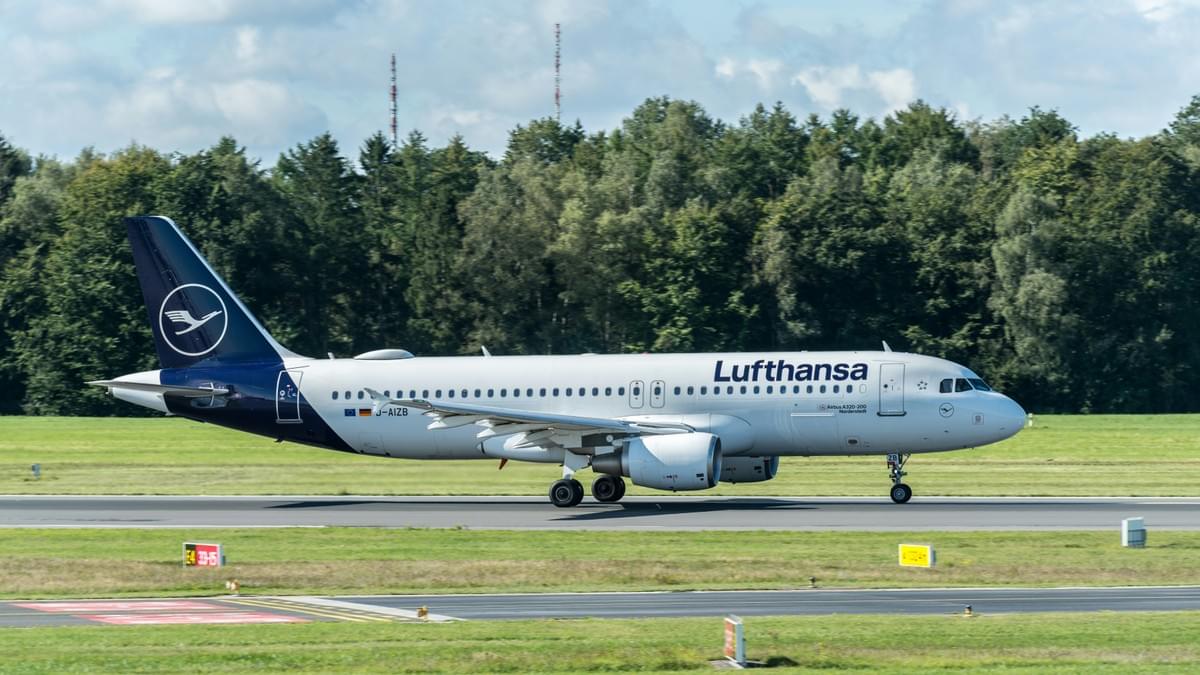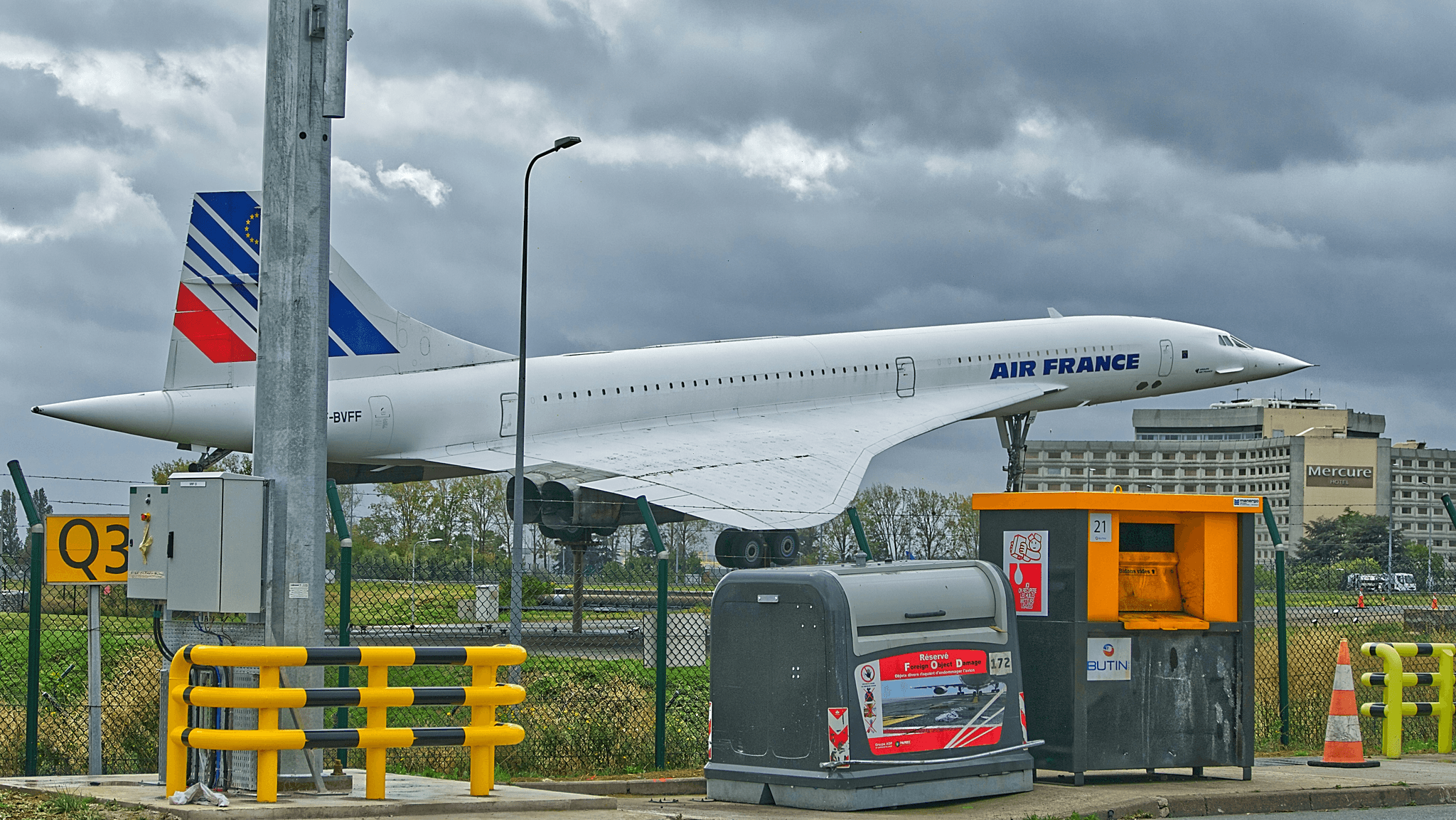Introduction

Airports are bustling hubs of activity, and one of the critical components that keep them running smoothly is the fuel truck airport operations. Understanding how fuel trucks contribute to airport efficiency is vital for ensuring timely and safe aircraft refueling. With various types of Jet and Avgas Refueling Trucks in use, it's essential to grasp their roles in the broader context of aviation logistics.
Understanding Fuel Truck Airport Efficiency
Fuel trucks play a pivotal role in airport operations, facilitating efficient fuel delivery to aircraft. These specialized vehicles are designed with specific features tailored for aviation needs, including Airport fuel truck capacity that meets the demands of busy terminals. By optimizing fuel logistics through effective management and operation of these trucks, airports can significantly reduce turnaround times for flights.
Importance of Optimizing Fuel Logistics
Optimizing fuel logistics is not merely about speed; it also involves cost-effectiveness and safety. Airports must ensure they have reliable sources for their fuel supply—so where do airports get their fuel from? By enhancing coordination between suppliers and ground operations, airports can streamline processes, minimize delays, and ultimately improve customer satisfaction.
Challenges in Fuel Transportation at Airports
Despite advancements in technology and equipment like Military Fuel Truck for sale options or Haisen's Aircraft Pipeline Refueling Truck, challenges persist in airport fuel transportation. Issues such as contamination risks during refueling or inefficient distribution methods can lead to significant operational setbacks. Moreover, questions often arise among operators: Can I buy a fuel truck and fuel my airplane?—highlighting a need for clarity on regulations surrounding private ownership versus commercial operations.
Key Components of Fuel Trucks

Fuel trucks play a crucial role in airport operations, ensuring that aircraft are refueled efficiently and safely. Understanding the key components of these vehicles can help optimize fuel logistics at airports. With the right knowledge, airport managers can make informed decisions about their fuel truck needs.
Features of Jet and Avgas Refueling Trucks
Jet and Avgas refueling trucks come equipped with specialized features designed to meet the unique demands of aviation fuel delivery. These trucks are built with high-capacity tanks that allow for significant fuel storage, minimizing the frequency of refueling trips. Additionally, they often include advanced filtration systems to ensure that only clean, quality fuel reaches the aircraft—after all, no one wants a where do airports get their fuel from? moment when it comes to impurities in aviation fuel.
The design of these trucks also emphasizes safety and efficiency; they are typically fitted with automatic shut-off valves and emergency spill containment systems. This is particularly important when considering options like a military fuel truck for sale or other specialized vehicles tailored for specific airport needs. Ultimately, investing in reliable Jet and Avgas refueling trucks can significantly enhance an airport's operational efficiency.
Breakdown of Airport Fuel Truck Capacity
Understanding airport fuel truck capacity is essential for effective logistical planning at any airfield. Most aviation fuel trucks vary in size but typically range from 1,500 to 10,000 gallons depending on their intended use—some may even exceed this capacity for larger operations. Having a clear grasp on how much fuel each truck can carry allows airports to optimize their refueling schedules and minimize downtime.
For instance, if you're pondering can I buy a fuel truck and fuel my airplane? knowing the specific capacities helps you determine which model best suits your requirements without overcommitting resources or underestimating your needs. Furthermore, larger capacity trucks reduce the number of trips needed to keep aircraft fueled up during busy flight schedules—a critical factor when time is money at an airport.
Innovations in Haisen's Aircraft Pipeline Refueling Truck
Haisen has made significant strides in revolutionizing airport fueling operations with its Aircraft Pipeline Refueling Truck model. This innovative vehicle integrates several advanced systems including chassis design, piping infrastructure, pneumatic control mechanisms, hydraulic systems, and electrical components—all crafted for optimal performance during refueling tasks at airports worldwide. With its high flow rate capabilities and efficient filtration processes that remove impurities like dust and moisture during filling operations, Haisen’s offering stands out among competitors.
Notably shorter than traditional models at just 2 meters high—often referred to as a low-altitude hydrant dispenser—Haisen's design allows for more versatile underwing refueling services across various aircraft sizes without compromising efficiency or safety standards. When considering options such as an aviation fuel truck for sale or comparing military alternatives available on the market today, Haisen’s innovations provide compelling reasons to choose their technology over others.
The Refueling Process Explained

Refueling at airports is a complex yet essential operation that ensures aircraft remain airborne and schedules stay on track. Understanding how fuel logistics work can provide insights into the efficiency of airport operations. This section will break down the refueling process, from sourcing fuel to ensuring optimal performance with effective filtration systems.
How Do Airports Get Their Fuel?
Airports typically source their fuel from major oil companies or specialized aviation fuel suppliers, who deliver it via large tankers or pipelines directly to the airport's fueling facilities. These suppliers ensure that the fuel meets stringent quality standards for both Jet A and Avgas types, crucial for different aircraft requirements. So, where do airports get their fuel from? It’s a well-oiled machine involving contracts, logistics planning, and timely deliveries to keep those jets soaring.
The capacity of airport fuel trucks plays a pivotal role in this process; they must be able to transport large quantities of fuel efficiently to meet the demands of busy airports. Fuel truck capacity can vary significantly based on design and purpose; hence, selecting the right type is vital for operational efficiency. Additionally, innovations like Haisen's Aircraft Pipeline Refueling Truck enhance this process by allowing high flow rates and effective filtration during refueling operations.
Step-by-Step Guide to Proper Refueling
Proper refueling procedures are critical for safety and efficiency at any airport. The first step involves connecting the appropriate hoses from the fuel truck airport to the aircraft’s fueling port while ensuring all safety protocols are followed meticulously. Next, operators monitor flow rates closely as they transfer Jet A or Avgas from the tank into the aircraft’s tanks—this is where using advanced equipment like Haisen's Aircraft Pipeline Refueling Truck comes in handy.
Following this initial connection, it's essential to conduct checks throughout the refueling process to prevent spills or contamination of aviation fuels. Operators should always utilize ground bonding techniques to eliminate static electricity that could ignite vapors during fueling operations—a common oversight that can lead to dangerous situations! Once fueling is complete, disconnecting hoses must be done carefully while adhering strictly to safety standards.
Ensuring Efficiency with Effective Filtration
Effective filtration systems are paramount in maintaining high-quality aviation fuels throughout transportation and storage processes at airports. Contaminants such as dust or moisture can severely impact engine performance; hence filtration systems are integrated into modern Jet and Avgas refueling trucks like those offered by Haisen. These systems ensure that impurities are removed before they reach an aircraft's tanks while accurately measuring flow rates during refueling.
Moreover, regular maintenance checks on these filtration systems help prevent any potential issues before they escalate into costly repairs or delays in operations—a win-win for both airport management and airlines! By investing in state-of-the-art equipment like military fuel trucks for sale or specialized aviation fuel trucks available on the market today, airports can significantly enhance their overall efficiency when it comes to handling aviation fuels.
Choosing the Right Fuel Truck

Selecting the right fuel truck for airport operations is crucial for ensuring efficient and safe refueling processes. With various types of fuel trucks available, including Jet and Avgas Refueling Trucks, understanding your specific needs is essential. Factors such as capacity, compatibility with aircraft types, and safety features should be at the forefront of your decision-making process.
Factors to Consider in Aviation Fuel Truck Selection
When it comes to aviation fuel truck selection, several key factors need consideration. First, assess the **airport fuel truck capacity** required for your operations; this will depend on the frequency of flights and volume of fuel needed. Additionally, consider the type of fuel used—Jet A or Avgas—and ensure that the chosen truck can handle both types effectively.
Another critical factor is compliance with safety regulations and standards for **Jet and Avgas Refueling Trucks**. The truck should be equipped with advanced filtration systems to remove impurities during refueling, as well as robust safety features to prevent spills or accidents. Lastly, evaluate technology integration capabilities; modern trucks like Haisen's Aircraft Pipeline Refueling Truck offer advanced systems that enhance efficiency through accurate flow rate measurement.
Comparing Military Fuel Truck for Sale Options
If you're considering a more rugged option, looking into **military fuel trucks for sale** might be worthwhile. These trucks are designed to withstand harsh conditions while providing reliable performance in fueling operations. Typically featuring higher durability and larger capacities than standard airport models, military trucks can also be adapted for civilian use if necessary.
However, it's essential to compare these military options against commercial airport-specific models like Haisen's offerings in terms of efficiency and operational suitability. While military trucks may excel in robustness, they might lack some specialized features found in dedicated **aviation fuel trucks** designed specifically for airports. Ultimately, your choice should align with your operational requirements while keeping an eye on cost-effectiveness.
The Question: Can I Buy a Fuel Truck for My Airplane?
Many aviation enthusiasts wonder: **Can I buy a fuel truck and fuel my airplane?** The short answer is yes—but there are important considerations involved in this decision! Owning a personal **fuel truck airport** means having direct access to fueling without relying on commercial services; however, you must ensure compliance with local regulations regarding storage and transportation of aviation fuels.
Additionally, when purchasing an **aviation fuel truck for sale**, consider the size and type that best fits your aircraft’s specifications—whether it’s Jet A or Avgas you're working with. It's also wise to invest in proper training on safe refueling practices since handling aviation fuels requires knowledge about emergency protocols and equipment operation to mitigate risks effectively.
Training and Safety Protocols

In the realm of airport operations, training and safety protocols are paramount, especially when it comes to fuel logistics. Staff training ensures that personnel are well-versed in the complexities of fuel handling, which is crucial for maintaining efficiency and safety in refueling operations. A well-trained team minimizes the risks associated with aviation fuel transportation, safeguarding both personnel and aircraft.
Importance of Staff Training in Refueling Operations
Understanding where airports get their fuel from is just the beginning; effective refueling requires skilled operators who can handle Jet and Avgas Refueling Trucks proficiently. Comprehensive staff training covers everything from operational procedures to emergency response tactics, ensuring that employees can respond effectively under pressure. Moreover, a knowledgeable workforce helps maintain high standards of safety and efficiency, which ultimately leads to smoother airport fuel truck operations.
Safety Standards for Jet and Avgas Refueling Trucks
Safety standards for Jet and Avgas Refueling Trucks are designed to mitigate risks associated with aviation fuel logistics. These regulations dictate everything from vehicle design to operational practices, ensuring that all equipment used meets stringent safety requirements. By adhering to these standards, airports can significantly reduce the likelihood of accidents during refueling operations involving airport fuel trucks.
Emergency Protocols in Fuel Transportation
In any industry where flammable materials are handled, having robust emergency protocols is essential—and aviation fuel transportation is no exception. Airports must establish clear emergency procedures that outline steps to take in case of a spill or fire involving their fuel trucks. This includes immediate communication channels with local fire departments as well as specialized training for staff on how to manage emergencies effectively while minimizing risk.
Enhancing Airport Operations

Efficient airport operations hinge on the seamless management of fuel logistics. Streamlining these logistics not only minimizes downtime but also maximizes aircraft availability, which is crucial for airlines and airport authorities alike. By optimizing the processes surrounding fuel delivery and refueling, airports can significantly enhance their overall operational efficiency.
Streamlining Fuel Logistics for Better Efficiency
To improve efficiency in fuel logistics, airports must first understand where they get their fuel from and how it flows through their systems. Airports typically source aviation fuel from refineries or specialized suppliers who deliver it via tankers or pipelines. By analyzing the entire supply chain—from procurement to storage and distribution—airports can identify bottlenecks that may hinder timely refueling operations.
Implementing a just-in-time delivery system can also optimize airport fuel truck capacity, ensuring that tanks are filled only as needed without excess inventory sitting idle. This approach reduces waste and lowers costs associated with storing large quantities of fuel on-site. Additionally, coordinated scheduling between flight operations and refueling services ensures that aircraft are fueled promptly, leading to faster turnaround times.
Utilizing Technology for Monitoring Fuel Delivery
Modern technology plays a pivotal role in enhancing the monitoring of fuel delivery systems at airports. Advanced tracking systems allow staff to oversee every aspect of the refueling process in real-time, ensuring that each Jet and Avgas Refueling Truck operates at peak performance levels. With digital dashboards displaying critical data such as flow rates, tank levels, and filtration status, operators can quickly respond to any issues that arise during fueling.
Moreover, utilizing automated alerts helps prevent overfilling or underfilling during fueling operations—critical factors when considering safety protocols in aviation environments. These technological advancements not only streamline processes but also provide valuable data analytics for future improvements in airport operations.
The Role of Innovative Trucks like Haisen
Haisen's Aircraft Pipeline Refueling Truck stands out as a game-changer in enhancing airport operations due to its innovative design features tailored for efficiency. With its advanced chassis and hydraulic control systems, this truck is capable of delivering high flow rates while maintaining rigorous filtration standards to remove impurities from jet fuels effectively. Unlike traditional models like the CF5060TJYGX Aircraft Hydrant Dispenser, Haisen's low-altitude hydrant dispenser is designed specifically for underwing refueling services across various aircraft sizes.
The ability to accurately measure flow rates while filtering out dust and moisture ensures that aircraft receive clean fuel efficiently—a crucial factor when considering where do airports get their fuel from? As more airports recognize the benefits of investing in cutting-edge technology like Haisen's trucks, they will likely see significant improvements in operational efficiency alongside enhanced safety measures.
Conclusion

In the fast-paced environment of airports, optimizing fuel management is crucial for operational efficiency. A well-managed fuel truck airport system can significantly reduce turnaround times and enhance overall service quality. By focusing on effective logistics and innovative technologies, airports can ensure that they meet the demands of modern aviation.
Boosting Efficiency in Airport Fuel Management
To boost efficiency in airport fuel management, it's essential to understand where airports get their fuel from and how it is transported to the aircraft. Utilizing advanced Jet and Avgas Refueling Trucks allows for quicker refueling processes, minimizing delays during busy travel seasons. Additionally, implementing streamlined procedures ensures that all aspects of fuel logistics are coordinated seamlessly.
Investing in the Right Equipment
Investing in the right equipment is fundamental to maintaining a reliable fuel supply chain at any airport. When considering options like an Aviation Fuel Truck for sale or even a Military Fuel Truck for sale, it's vital to evaluate their capacity and features to match specific operational needs. Questions such as Can I buy a fuel truck and fuel my airplane? should lead potential buyers to consider not only their immediate requirements but also future scalability.
Future Trends in Airport Fuel Truck Technology
As technology continues to evolve, so do the capabilities of airport refueling vehicles. Innovations like Haisen's Aircraft Pipeline Refueling Truck are setting new standards with high flow rates and advanced filtration systems that ensure clean delivery of aviation fuels. The future will likely see even more sophisticated designs focused on sustainability and efficiency, making it imperative for airports to stay ahead of trends in their fuel truck airport operations.
